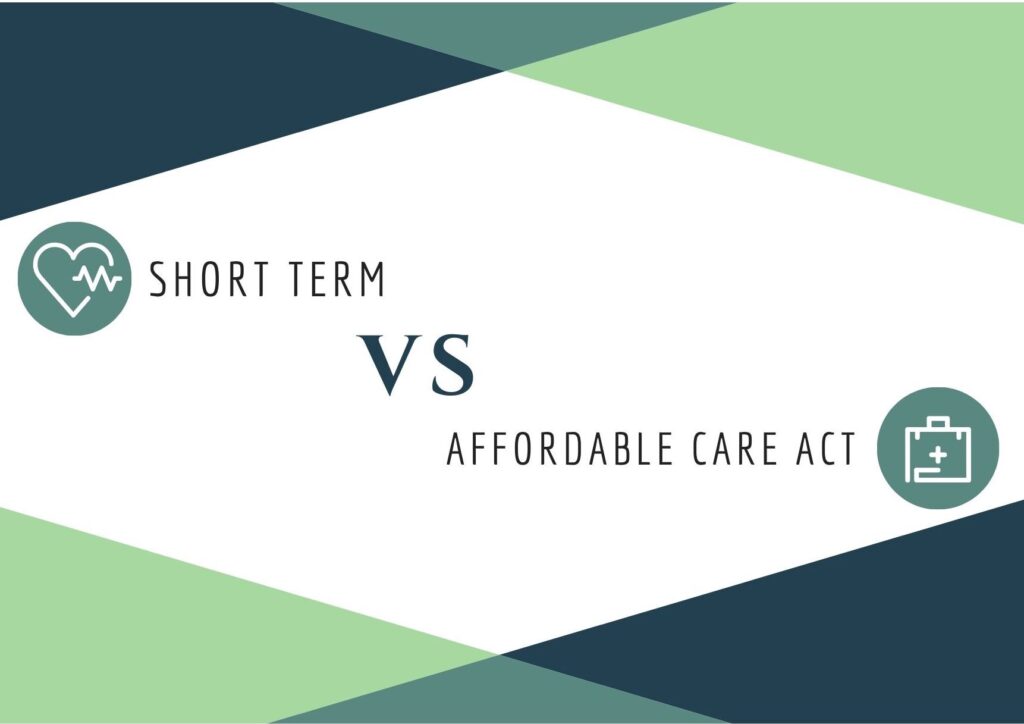What is Short Term Health Insurance?

Short term health plans are low-cost, low-coverage plans. They usually have lower premiums, but higher out-of-pocket costs and less coverage.
Short term plans are like temporary health insurance. Regular health insurance is renewed annually and you can only obtain it during Open Enrollment or upon triggering a life change. Short term plans are available for most people up to one year with the option to extend the plans twice.
Some major health insurers, such as UnitedHealthcare, offer short-term plans. Don’t confuse that coverage with regular health insurance. Just because a big-name insurer offers a short-term plan doesn’t mean that plan will provide you with full health insurance coverage. It’s not always easy to distinguish between plans, so reading the fine print is critical.
What does it cover?
What short term plans cover varies by each plan. Federal regulations allow short-term plans to create their own coverage plans without any required mandates found in a regular health insurance plan.
Services often not covered by short-term health plans include:
- Mental health
- Outpatient prescription drugs
- Maternity
- Substance abuse
Short-term plans can come with more benefits but will cost more than ones that provide little protection. So, if your short-term plan covers hospitalizations, but only up to $4,000, you’ll be on the hook for any amount above $4,000. That’s one reason why it’s critical to dig into what a specific short-term plan covers before signing up.
Short-term plans can also have hefty out-of-pocket costs. Many short-term plans have lifetime limits on what they’ll cover. If you have a short-term plan and diagnosed with a costly illness, the plan may stop paying for care after a limit is reached, such as at $100,000.
Short Term Plans vs ACA plans

There’s also the issue of being denied coverage. While Affordable Care Act (ACA) plans require that insurers approve everyone regardless of health status, short-term plans can reject you. Some states may require “guaranteed issue,” which means a plan must cover you. However, the federal law doesn’t demand that for short-term plans.
A short-term plan may reject you if you have a pre-existing condition or may charge you exorbitant premiums. That’s not allowed in ACA plans.
One way to spot if a plan is ACA or a Short Term plan is to ask for a Summary of Benefits and Coverage. This is a standardized form for ACA plans, so if there isn’t one available, it’s a good indication it’s a Short Term plan.
Who should get a Short Term Plan?

Healthy people might benefit from a short-term health plan’s low premiums as long as you don’t need health services. These plans can provide you with some coverage but can lead to substantial out-of-pocket costs.
People with any illness and pre-existing conditions like asthma or diabetes should avoid short-term plans. Even if a short-term plan covers you, your pre-existing condition will likely lead to significant premiums. The plan also probably won’t provide enough coverage to make it worth your while.
While short term plans have their shortcomings, they are a great option if you need to bridge a gap between employer plans when you change jobs. These plans are also a more affordable option in comparison to COBRA insurance. They are also a great way to keep health coverage while you wait for Open Enrollment to begin.
People all over the United States are choosing between short-term plans and no coverage at all. For them, short-term plans can be a good fit to protect against emergencies and unexpected accidents. If you’re healthy and don’t plan on using healthcare services often, a short term plan is much better than having no coverage at all!

